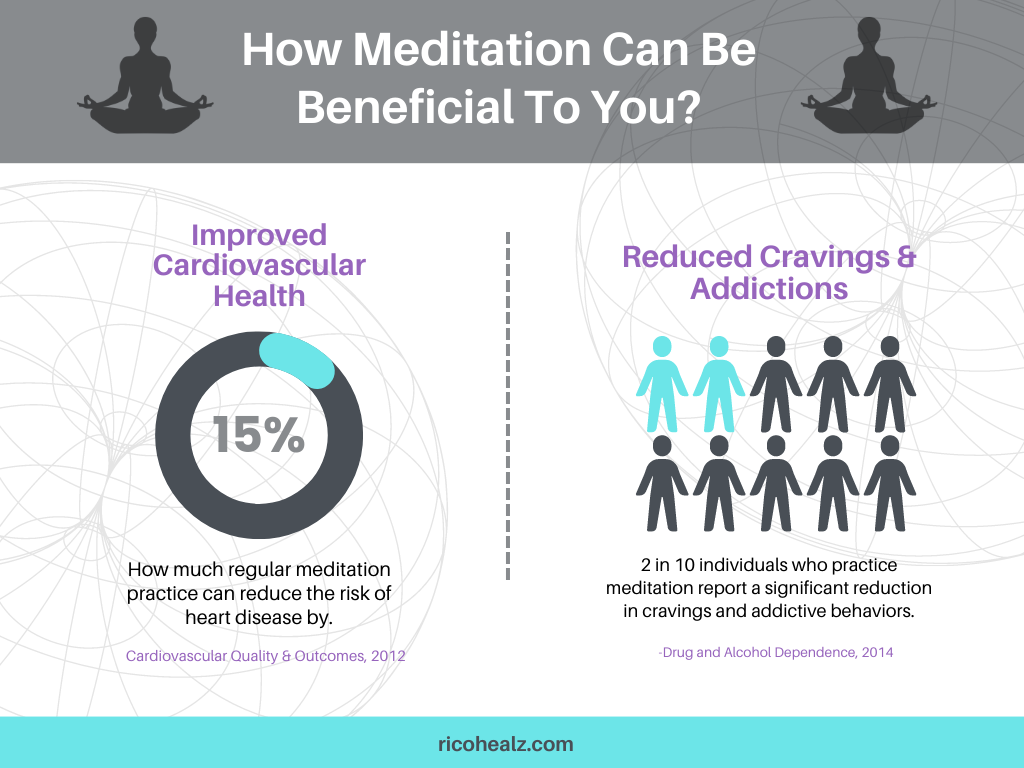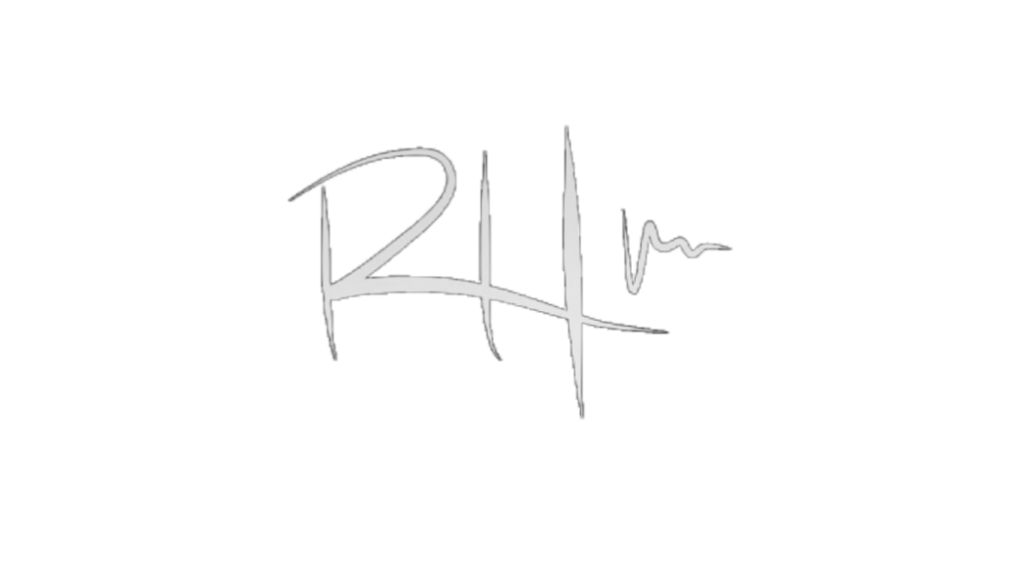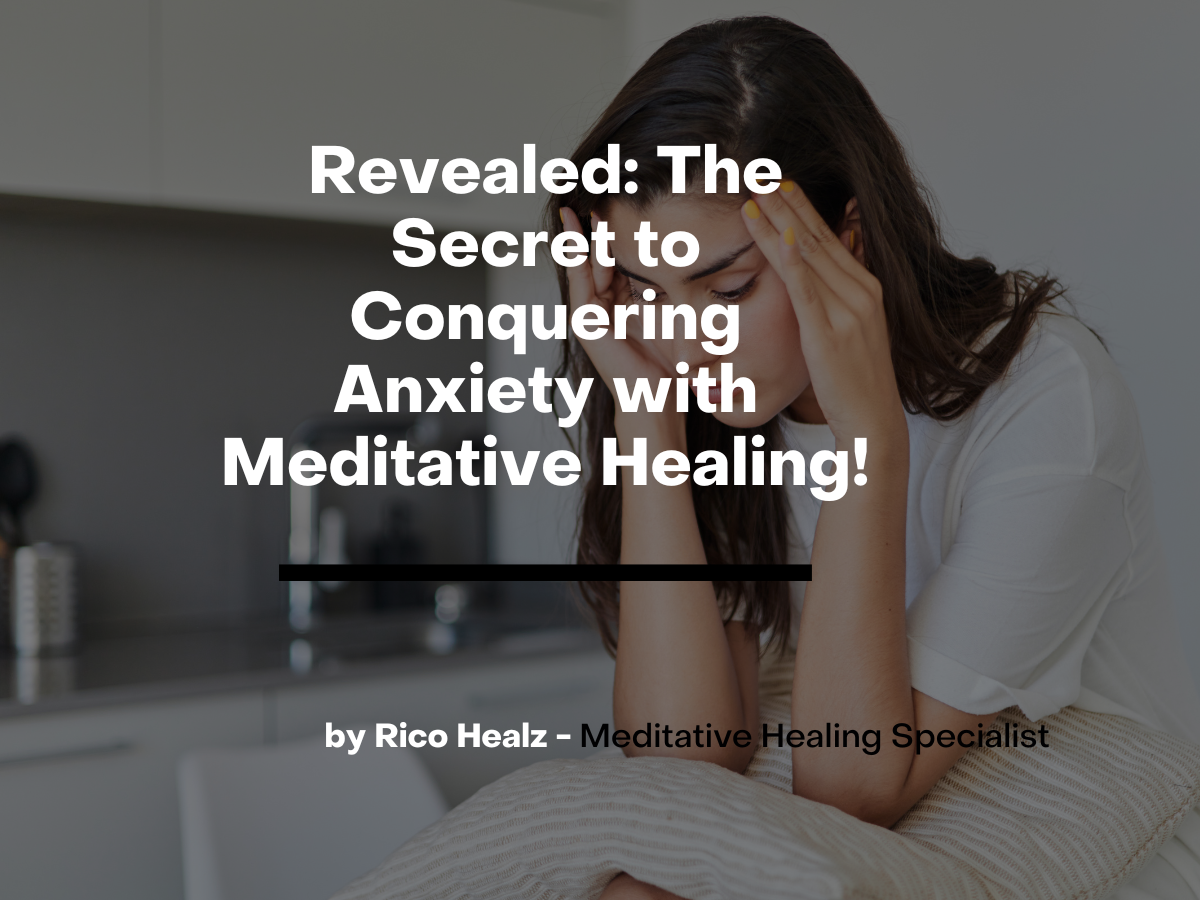Discover Meditative Healing’s Power To Ease Anxiety Now!
Introduction
“Discover Meditative Healing’s Power to Ease Anxiety.” Is it possibleMeditation is a cornerstone of meditative healing. It has been practiced for thousands of years in various cultures and spiritual traditions. Meditation has evolved into diverse forms and techniques. Each with its unique focus and benefits. Scientific study has just started to reveal its many physical and psychological benefits. These benefits range from reducing stress and anxiety. To improve sleep quality and cognitive function.
Mindfulness meditation is often used as a foundation for cultivating greater self-awareness and emotional regulation. By combining meditation with other healing practices. Visualization, breathwork, body-focused techniques, and meditative healing all aim to facilitate a comprehensive approach. Allowing the overcoming of anxiety and promoting overall well-being.
In this article, we will delve into the science behind meditative healing. As well as exploring various meditative healing techniques. Advising on how to better manage anxiety by including meditation healing into your everyday practice.

The Science Behind Meditative Healing and Anxiety
Understanding Anxiety
Anxiety is a natural stress response and can manifest in different ways, such as worry, uneasiness, and apprehension. It becomes problematic when these feelings persist and interfere with daily functioning. Chronic anxiety can lead to numerous health issues, including insomnia, digestive problems, and even weakened immune systems. Anxiety disorders are among the most common mental health conditions, affecting millions of people worldwide.
At the neurological level, anxiety is linked to an overactive amygdala, which is responsible for processing fear and stress-related emotions. Additionally, anxiety can disrupt the balance of neurotransmitters, such as serotonin, dopamine, and norepinephrine, which play crucial roles in mood regulation and stress response. People with anxiety disorders often exhibit altered neural connectivity and functioning in brain regions responsible for emotional regulation, attention, and decision-making.
The Effects of Meditation on the Brain
Meditation has been shown to positively impact the brain in several ways. Studies have found that it can increase gray matter density in regions associated with emotional regulation, self-awareness, and perspective-taking. These areas include the prefrontal cortex, the anterior cingulate cortex, and the hippocampus. Increased gray matter density in these regions can contribute to better cognitive and emotional functioning, helping individuals manage their anxiety more effectively.
Moreover, meditation has been found to decrease the activity in the amygdala, the area responsible for processing fear and anxiety. By reducing amygdala activity, meditation can help alleviate the intensity of anxiety symptoms and promote a greater sense of calm and emotional balance.
Research has also shown that meditation can enhance the production and release of neurotransmitters, such as serotonin and dopamine, which are involved in mood regulation and stress response. This can further contribute to a reduction in anxiety levels and an overall improvement in mental well-being.
Furthermore, meditation has been found to increase the connectivity between various brain regions, particularly those involved in attention and emotional regulation. This enhanced connectivity can lead to more effective communication between brain areas, enabling individuals to better manage their thoughts and emotions, and ultimately, reduce their anxiety.
How Meditative Healing Builds on Meditation’s Benefits
Meditative healing goes beyond traditional meditation by incorporating additional healing techniques that target specific aspects of anxiety. For example, it may involve visualization exercises to address negative thought patterns. Also, body-focused practices releasing tension and stress held in the body. By combining meditation with these complementary practices, meditative healing aims to offer a more comprehensive approach to addressing the complex nature of anxiety and promoting overall well-being.

How Meditative Healing Can Help Alleviate Anxiety
Meditative healing can significantly help alleviate anxiety by addressing various aspects of this condition. Here are some key ways in which meditative healing can contribute to reducing anxiety:
- Developing a Calmer Mind: Meditative healing encourages a state of relaxation, allowing individuals to become more aware of their thoughts and emotions. As a result, they can better manage their anxiety and respond to stressors more effectively.
- Improving Emotional Regulation: Through regular meditation, individuals can develop a greater capacity to regulate their emotions. This increased emotional intelligence can help them recognize the triggers of their anxiety and find healthier ways to cope.
- Enhancing Self-Awareness: Meditative healing helps individuals become more self-aware, enabling them to identify patterns of thought and behavior that contribute to their anxiety. With increased self-awareness, they can make necessary changes to reduce anxiety and improve overall well-being.
More Ways
- Promoting Neuroplasticity: Meditation has been found to facilitate neuroplasticity, or the brain’s ability to reorganize and adapt. By engaging in meditative healing practices, individuals can help their brains develop new connections and pathways that support better emotional regulation and resilience to stress.
- Reducing Physical Symptoms: Anxiety often manifests as physical symptoms, such as muscle tension, rapid heartbeat, and shallow breathing. Meditative healing techniques, such as deep breathing and progressive muscle relaxation, can help individuals alleviate these physical symptoms, making it easier to manage anxiety.
- Cultivating a Supportive Mindset: Meditative healing encourages individuals to develop a more compassionate and non-judgmental attitude toward themselves and their experiences. This supportive mindset can be particularly helpful in reducing anxiety related to feelings of inadequacy or self-doubt.
- Fostering a Sense of Control: Anxiety can often make individuals feel out of control or overwhelmed by their thoughts and emotions. By engaging in meditative healing practices, they can regain a sense of control over their mental and emotional states, leading to a reduction in anxiety.
- Improving Sleep Quality: Anxiety often disrupts sleep patterns, leading to insomnia or poor-quality sleep. Meditative healing can help promote relaxation and improve sleep quality, which can further contribute to reduced anxiety levels and better overall well-being.

Techniques for Meditative Healing
To deal with anxiety, meditative healing practices can involve a variety of strategies. Some of these include:
- Mindfulness Meditation: Mindfulness meditation involves focusing on the present moment without judgment. By paying attention to their breath, bodily sensations, or thoughts, individuals can cultivate a sense of presence and reduce anxiety.
- Loving-Kindness Meditation: This form of meditation encourages individuals to develop feelings of love and compassion for themselves and others. It can be particularly helpful in reducing anxiety related to feelings of inadequacy or self-doubt.
- Guided Imagery: Guided imagery involves using mental images to evoke relaxation and healing. Individuals can imagine themselves in a peaceful environment, allowing their minds to let go of anxiety-provoking thoughts.
- Breathwork: Breathwork techniques, such as deep breathing or alternate nostril breathing, can help individuals regulate their nervous system and reduce anxiety. By focusing on their breath, they can promote relaxation and create a sense of calm.
More Techniques
- Progressive Muscle Relaxation: This technique involves systematically tensing and relaxing different muscle groups throughout the body. It can help individuals become more aware of physical tension related to anxiety and release it, promoting relaxation and well-being.
- Body Scan Meditation: A body scan meditation involves bringing awareness to different parts of the body, observing any sensations or tension, and releasing them. This practice can help individuals connect with their bodies and reduce physical symptoms of anxiety.
- Mantra Meditation: In mantra meditation, individuals repeat a specific word or phrase, such as “peace” or “relax,” to help focus the mind and promote relaxation. This practice can be particularly helpful in quieting anxious thoughts and creating a sense of inner calm.
- Yoga: Yoga is a physical practice that incorporates postures, breathwork, and meditation to promote relaxation and well-being. Regular yoga practice can help individuals develop greater self-awareness and emotional regulation, reducing anxiety over time.
- Mindful Movement: Mindful movement practices, such as tai chi or qigong, involve gentle, flowing movements that are performed with awareness and intention. These practices can help individuals release physical tension related to anxiety and cultivate a sense of balance and inner peace.
Incorporating Meditative Healing into Your Routine
Setting Realistic Expectations
It’s important to approach meditative healing with realistic expectations. Meditative healing can be an effective tool for managing anxiety. However, it may not be a complete cure. Individuals should view it as a complementary therapy that works alongside other treatments.
Creating a Consistent Practice
Consistency is key when it comes to meditative healing. Establishing a daily meditation routine can help individuals experience its full benefits in managing anxiety.
Seeking Support from Professionals
For individuals struggling with severe anxiety, it’s essential to consult mental health professionals. They can guide on incorporating meditative healing into a comprehensive treatment plan.

Conclusion
Meditative healing can be an effective approach to managing anxiety. By incorporating mindfulness techniques and other meditation practices, individuals can develop greater emotional regulation, self-awareness, and a calmer mind. While it may not be a complete cure, meditative healing can significantly improve overall well-being. Use it consistently and in conjunction with other therapies.
FAQs
Q: What is meditative healing? A: Meditative healing combines mindfulness meditation and healing techniques to address emotional, mental, and physical issues. It is a holistic approach to treating anxiety, stress, and other related concerns.
Q: Can meditative healing completely cure anxiety? A: Meditative healing can significantly reduce anxiety and improve overall well-being, but it may not be a complete cure. It’s important to view it as a complementary therapy that works alongside other treatments.
Q: How does meditation affect the brain? A: Meditation has been shown to increase gray matter density. In regions associated with emotional regulation, self-awareness, and perspective-taking. It can also decrease activity in the amygdala, the area responsible for processing fear and anxiety.
Q: What are some techniques used in meditative healing? A: Techniques used in meditative healing include… mindfulness meditation, loving-kindness meditation, and guided imagery. Each of these practices can help reduce anxiety and promote relaxation.
Q: How can I incorporate meditative healing into my routine? A: To incorporate meditative healing into your routine, establish a daily meditation practice, set realistic expectations, and seek support from professionals when needed. Consistency and a balanced approach to treatment are crucial for experiencing the full benefits of meditative healing.


Vitazen Keto Gummies Hi there to all, for the reason that I am genuinely keen of reading this website’s post to be updated on a regular basis. It carries pleasant stuff.
I simply could not go away your web site prior to suggesting that I really enjoyed the standard info a person supply on your guests Is going to be back incessantly to investigate crosscheck new posts
Temp mail Awesome! Its genuinely remarkable post, I have got much clear idea regarding from this post . Temp mail
I am not sure where youre getting your info but good topic I needs to spend some time learning much more or understanding more Thanks for magnificent info I was looking for this information for my mission
Wonderful web site Lots of useful info here Im sending it to a few friends ans additionally sharing in delicious And obviously thanks to your effort
Its like you read my mind You appear to know a lot about this like you wrote the book in it or something I think that you could do with some pics to drive the message home a little bit but instead of that this is fantastic blog An excellent read I will certainly be back
I simply could not go away your web site prior to suggesting that I really enjoyed the standard info a person supply on your guests Is going to be back incessantly to investigate crosscheck new posts
Admin, this was really amazing. Thank you for your kind considerations.